Marko Bermanec
How Rocks Record Earth’s Most Powerful Processes
Earth is a dynamic planet, constantly reshaped by dramatic collisions between tectonic plates, causing major earthquakes and other natural hazards that directly influence human lives. My research focuses on understanding how fluids and chemical reactions reshape rocks as they are dragged deep into subduction zones and later exhumed. These reactions can weaken or strengthen the rocks along plate boundaries, influencing where major earthquakes occur. In the Greek Cyclades, slices of ancient subduction zones are now exposed at the surface, offering a rare archive of what happens 40–60 km underground. I study minerals that formed during this journey, with a special focus on a group of minerals called epidotes, to uncover when fluids moved through these rocks and where those fluids came from—key information for reconstructing the mechanical evolution of subduction zones.
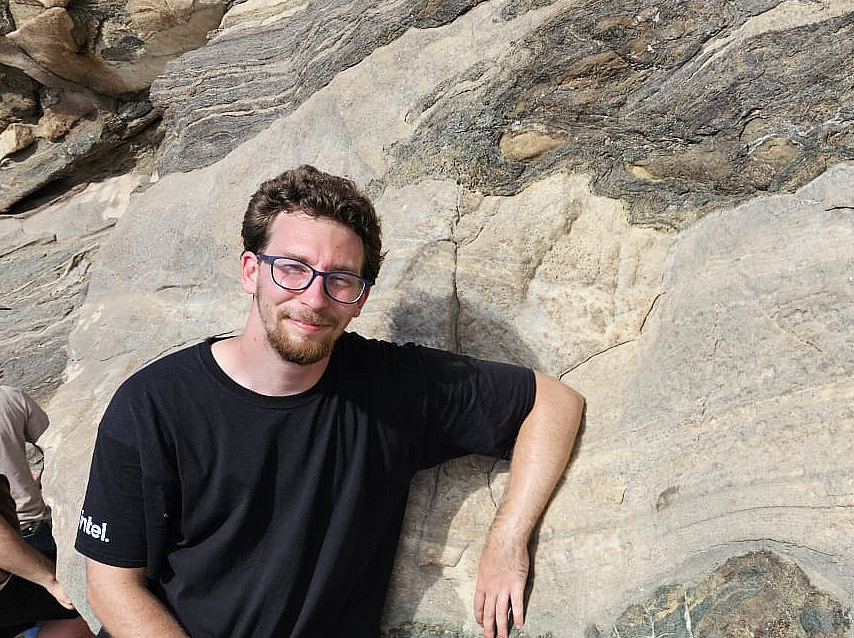
Univ.-Prof. Dr. Christoph A. Hauzenberger
How old are our mountains?
Our Earth is constantly being reshaped by plate tectonic processes, new plates are formed at mid-ocean ridges, while others sink back into the Earth's interior at collision zones. Mountains pile up, but are eroded again over time and disappear. We focus on processes that take place in the lower crust during orogen formation. Rocks form anew there, recrystallize and record this; they have a memory! Our task is to decipher this information and, in particular, to determine the age of crystallization.
The laboratory infrastructure at the Department of Earth Sciences allows us to determine the exact age of rock (re)crystallization. Some minerals incorporate radiogenic isotopes into their crystal lattice (e.g. zircon, monazite, titanite, ...). With the help of a 10-30 µm laser beam and a mass spectrometer, the parental and decay isotopes (e.g. uranium - lead) are analyzed in-situ. An age can be calculated from the ratio of these isotopes.
Ongoing projects are dealing with deciphering mountain building events in Austria (Bohemian Massif, Eastern Alps), Greenland, Tanzania, Sri Lanka, Thailand and Vietnam. A particularly interesting aspect of the study of the Earth's lower crust is the occurrence of gemstones. Due to high temperatures, gemstones such as ruby, sapphire, spinel, aquamarine, tourmaline, ... can be found as large, inclusionfree crystals.

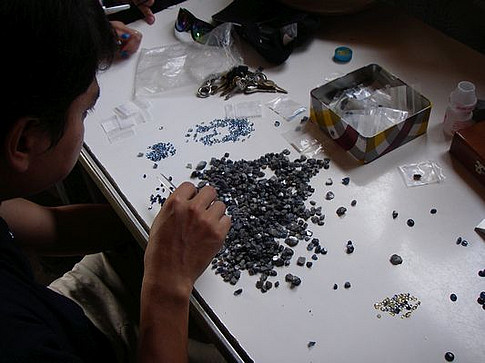
Prof. Dr. Walter Kurz
Buried: What happens in the depths of the earth?
A large part of the global geological processes that we observe on our planet take place in the oceans or originate there, especially the processes of tectonic plate movement. Oceanic crust covers about 71% of the planet's surface and is largely covered by seawater. On a global average, the ocean floors lie at a depth of around 3.8 km below sea level and are very difficult for us to access over large areas. They can only be explored and investigated at great expense, for example by drilling in the deep sea. As a result, our knowledge of the ocean floors is still very limited - we even know more about the surface of Mars.
Walter Kurz and his colleagues examined rock samples from deep sea drilling cores obtained during expeditions as part of the International Ocean Discovery Program (IODP). Walter Kurz took part in three of these expeditions as part of a team of 35 scientists on board the research vessel Joides Resolution. During these expeditions, the oceanic crust in the area of subduction zones was examined in detail.
Subduction zones are areas where a tectonic plate moves under another plate and is subsequently transported into the Earth's deeper mantle.
Earthquakes with very high magnitudes occur along subduction zones worldwide. Such earthquakes can also trigger tsunamis, among other things. The more we understand about such processes, the more it will be possible, for example, to take appropriate preventive measures.
Further information:
https://erdwissenschaften.uni-graz.at/de/unsere-forschung/geologie/#c625133
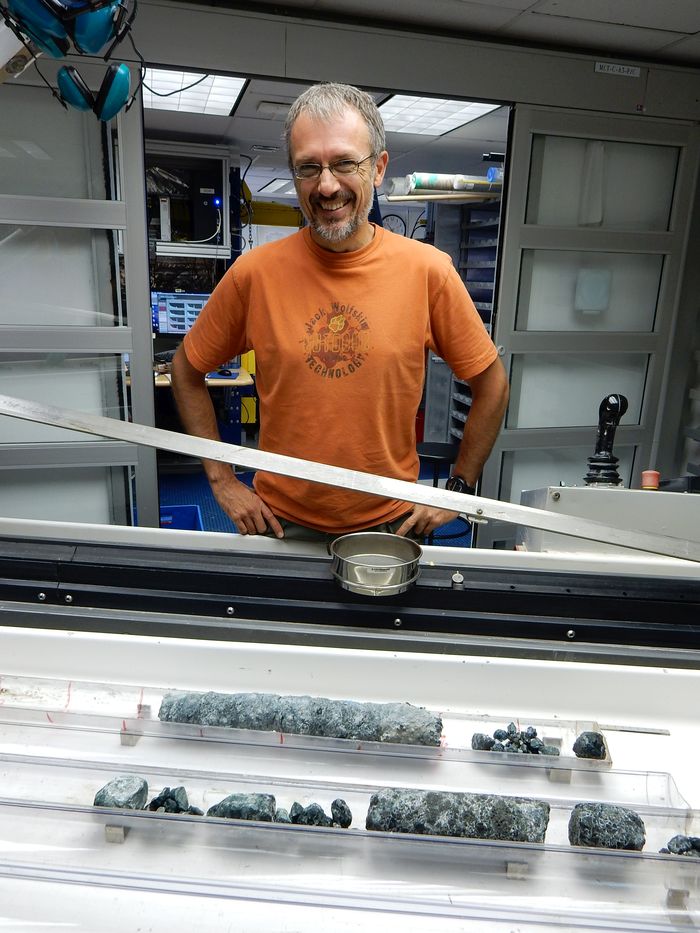
Assistant Professor Dr. Maud Meijers
How do landscapes and life develop over millions of years?
Processes that acted on the Earth’s surface in the geological past can be quantified by stable isotope analysis. More specifically, my research group and I reconstruct the climate, vegetation, and elevation of mountain ranges over millions of years. For many years, I have been working on the Anatolian plateau (Türkiye) with local and international collaborators. We analyze for instance the carbon isotopic composition of carbonates in soils and in the teeth of fossil, herbivore mammals. With this information, we can determine which photosynthetic pathways were dominant in the vegetation that covered Anatolia over the past ca. 10 million years and reconstruct the landscape.
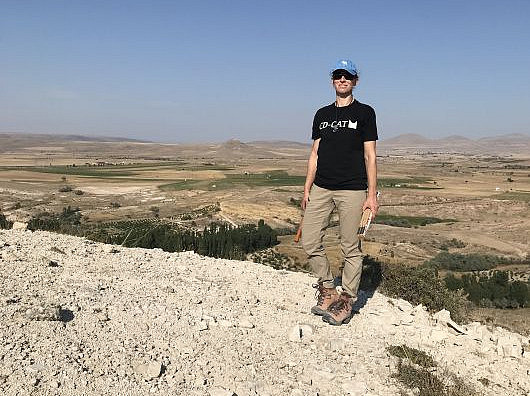
Ass.-Prof. Dr.rer.nat. Gerald Auer BSc MSc
How does climate change affect the oceans?
Modern climate change is a major challenge of our time. However, it is not easy to predict how the climate will develop. However, there are epochs in the Earth's history that can answer burning questions that we need to ask ourselves for the future: How warm will it get if greenhouse gas concentrations continue to rise? How will ocean currents change in a warmer world? What happens to marine ecosystems when the oceans warm? How will the Earth's climate and ecosystems stabilize once a climate crisis has been overcome and how long will it take?
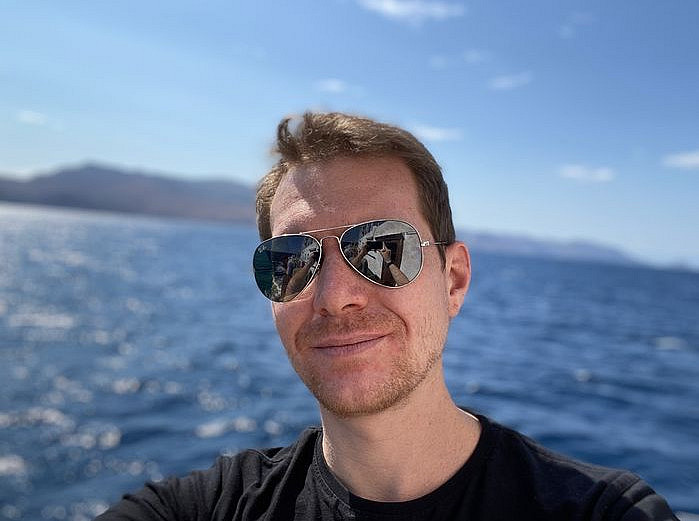
Department members
Walter Kurz deals with plate tectonic processes in the continents and oceans. Our research here in Graz investigates, for example, how old continental crust was incorporated into the construction of the Alps, or how the oceanic lithosphere changes in the area of intraoceanic subduction zones. For research into the oceans, we mainly use drill cores obtained by deep-sea drilling during expeditions as part of the International Ocean Discovery Program.
A current project is concerned with the transformation of the mantle of the Philippine Plate in the area of the Mariana Trench.
Maud Meijers is an Assistant Professor of Sedimentary Geology. Her work is focused on reconstructing Earth surface processes on geological time scales and their interactions with tectonics and regional biodiversity.
Gerald Auer and his team conduct research in the fields of paleoclimatology and paleoceanography, where they use microscopic fossils and geochemical analyses to better understand the effects of past climate changes on marine ecosystems. Using the methods of (micro)paleontology and stratigraphy, they create new insights into the rate and effects of climate-driven environmental changes and their interactions. Their research is based on data and samples from deep-sea drilling by the International Ocean Discovery Program (IODP). In Austria, they also conduct research on the preserved marine sediments of the Pannonian Basin system and the Northern Limestone Alps.
Current projects of his research group deal with the effects of climate change and ocean glaciation on the nutrient content and species richness in the world's oceans, as well as the understanding of the interactions between climate and tectonic changes in the configuration of land masses and ocean basins.
Bernhard Hubmann works on shallow marine ecosystems of the Paleozoic. His special focus is on research into the palaeobiology (ecology, biogeography) of Devonian corals and calcareous green algae.
Additional fields of activity concern the scientific history of geology in Austria and the geoscientific education and training of teachers.